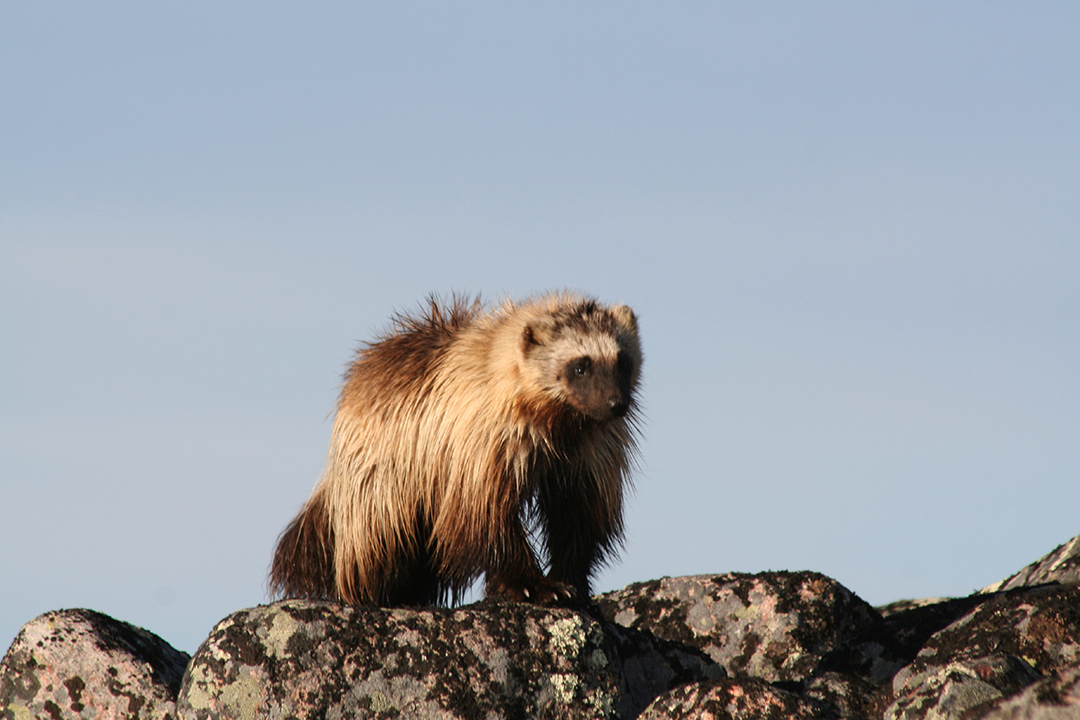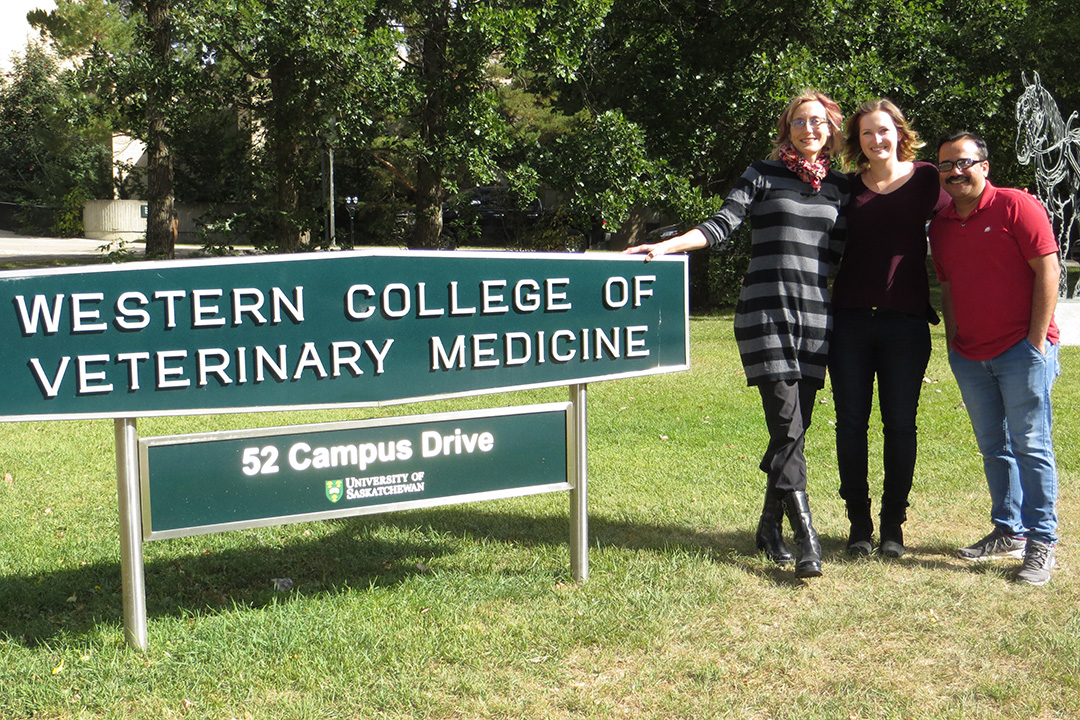
Wolverine research in the North
In the past 40 years, research into wolverine parasites has been as elusive as the animals themselves. Fortunately, that situation is changing, and PhD candidate Rajnish Sharma is the latest researcher to turn his sights on parasites affecting these carnivorous mammals.
By Sasha RossSharma, a graduate student in the Western College of Veterinary Medicine’s (WCVM) Department of Veterinary Microbiology, is researching Trichinella nativa, Toxoplasma gondii and gut parasites of wolverines in the Yukon.
While wolverines are harvested for fur and not for subsistence, this scavenger species eat other animals that are food sources for people. Therefore, wolverines can act as “sentinel species” — indicators for foodborne parasites in the environment.
“They could reflect the parasite population and reflect the presence of parasites in other wildlife surrounding them in that geography because they are at the top of the food chain. And, as predators, they can act as the bioaccumulators of these parasites,” says Sharma, whose graduate supervisor is Dr. Emily Jenkins.
“Instead of working with all wildlife host species, we first focus on sentinel species such as wolverines and if we find positives, then we can try to find sources of [the parasite],” explains Sharma.
Their four-year research project, which began in 2014, aims to provide a current snapshot of wolverine parasite prevalence. By comparing their results with data collected 40 years ago, the researchers can monitor the effects of climate change on parasites and their hosts.
As Sharma explains, environmental changes are occurring quickly in Canada’s Arctic. In addition to generating some baseline data, the WCVM team’s work will help other researchers learn how environmental changes are affecting the ecology of these parasites.
“Trichinella and Toxoplasma are foodborne parasites,” explains Sharma. “Trichinella is a roundworm with 12 genotypes. Trichinella spiralis (T1 genotype) is usually found in pigs and has been eradicated in Canada, but we still have the other strains that are found in wildlife.”
Trichinella nativa (T2) and Trichinella T6 are the most common types found in wildlife. Both are freeze-resistant strains that remain viable in temperatures below -20°C.
“They are important from a public health point of view because there have been [human] outbreaks of these genotypes in Arctic Canada,” says Sharma.
While there has been research on Trichinella in the Yukon, these studies focused only on identifying the presence of the parasite and didn’t use molecular techniques to determine the genotype. Sharma’s baseline study will use polymerase chain reaction (PCR) to determine the genotype of any Trichinella found.
To determine the prevalence of Trichinella, Sharma processes muscle tissue from wolverine tongues — a part of the wolverine’s anatomy where Trichinella prefers to go. While the animal’s diaphragm is another predilection site for the parasite, Sharma says the tongue is more accessible for testing: “It is easy for any layperson to remove a tongue.”
The researchers use brain, heart and fluid samples for the detection of Toxoplasma. DNA is extracted from these tissues and analyzed to see if DNA of Toxoplasma is present.
For Sharma, his project is unique and fascinating because he’s producing baseline data that could be applied by other researchers to answer wildlife- and climate-related questions in the future. It’s also provided him with the opportunity to interact with wildlife veterinarians, biologists and students.
“Working and interacting with them has been a memorable experience,” says Sharma.
Click here to read an abstract describing this research that was published in Veterinary Parasitology.
Sasha Ross of Yellowknife, N.W.T., is a second-year veterinary student who was part of the WCVM’s Undergraduate Summer Research and Leadership program in 2017. Sasha’s story is part of a series of articles written by WCVM summer research students.

